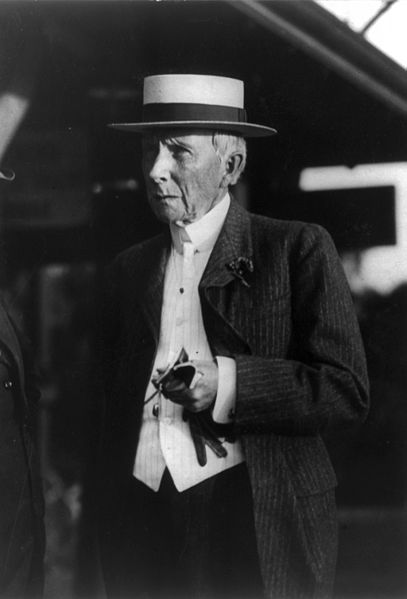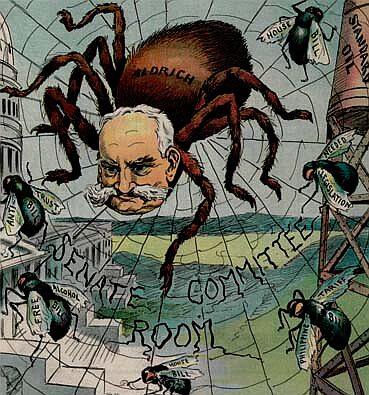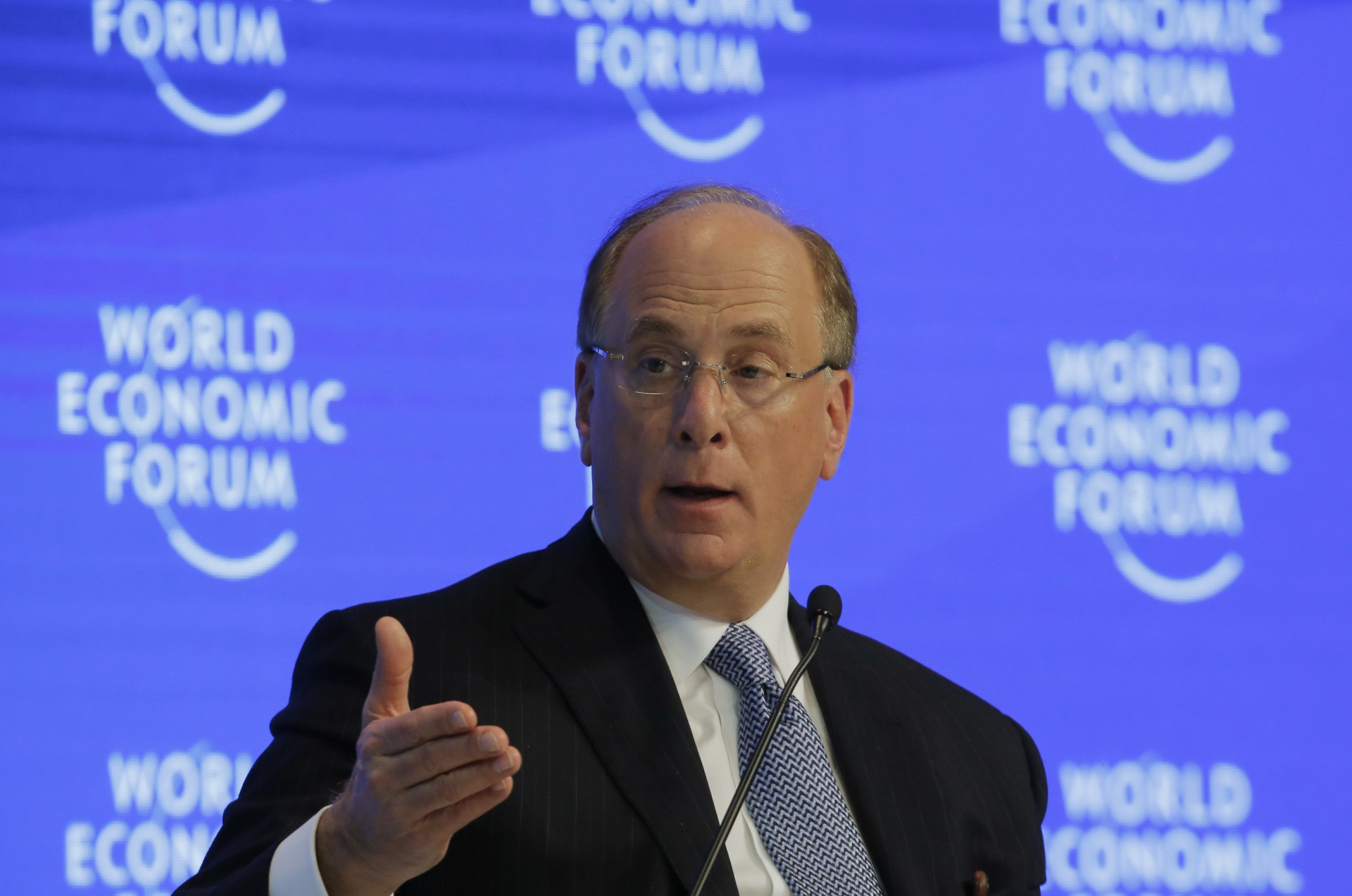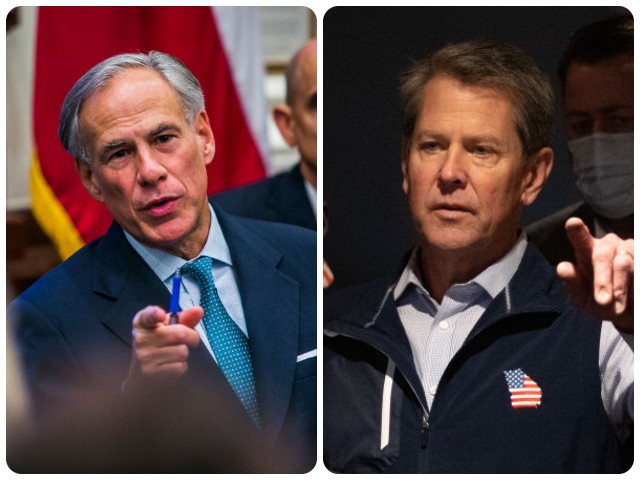Isolation Is Weakness; Strength Is in Numbers
Legend has it that back in 1776, at the signing of the Declaration of Independence in Philadelphia, Ben Franklin quipped to his fellow revolutionaries, “We must all hang together, or most assuredly we shall all hang separately.” That is, if the patriots didn’t stay together and fight for independence as a group, the British would win and then hang them all, one by one.
Fortunately, there’s strength in unity. George Washington kept the army of the 13 colonies intact, and so, after five arduous years of fighting, he won a decisive victory at Yorktown. To this day, the success of the American Revolution stands as an inspiring saga of purposeful teamwork; the Americans hung together—and were not hanged.
Yet of course, there’s no such thing as a final victory; anything that humans have done can be undone, and anything—including independence and sovereignty—can be lost.
Now today, defenders of American state sovereignty are at risk of losing the federal rights that were enshrined in the Constitution and in subsequent laws. So, this article is a discussion of what to do about it.

In this 1754 political cartoon, Benjamin Franklin emphasized the need for unity among the colonies if they were to be successful in achieving independence from Great Britain. (Wikimedia Commons)
The Campaign to Squash the Peach
Every Breitbart News reader knows about what’s been happening in Georgia, as Democrats have recruited allies—including Big Media, Big Culture, and, most interestingly, Big Business—to join them in an attempt to bludgeon the Peach State into changing its just-changed voting laws.
Democrats have reason to hope that their effort to beat down Georgia will succeed; after all, four years ago, a similar beat-down effort succeeded in North Carolina. Back in March 2016, the Tarheel State enacted the Public Facilities Privacy & Security Act, the so-called “bathroom bill,” which sought to enforce uniform state standards for restrooms. But then came a storm of criticism, led by the Democratic president, Barack Obama, followed by threats of pullouts and boycotts. Later that year, the Republican governor who signed the bill, Pat McCrory, was defeated, and the year after that, the “bathroom bill” was repealed. (Breitbart News covered the story extensively.)
So now today, Democrats are orchestrating the same sort of criticism against Georgia. Once again, a Democratic president is taking the lead, and the same playbook—threats, pullouts, boycotts—is being played. Already, we have seen Major League Baseball pull the All-Star Game from Atlanta, and actor Will Smith announced that he was pulling a movie production from Georgia; many other punishments are planned. Breitbart News has covered this story extensively; sample headline, just from April 14: “Hundreds of Corporations, Including Starbucks, Netflix, Sign Letter Opposing Election Integrity Laws.” That is, election integrity laws everywhere.

A fan looks through the locked gates of Truist Park, home of the Atlanta Braves, in Atlanta, Georgia. Major League Baseball decided to move the All-Star Game from Atlanta in protest of the Georgia’s election reform legislation. (Photo by Kevin C. Cox/Getty Images)
Democrats wish to make Georgia into a second North Carolina, and then make Texas into a third North Carolina, then maybe Arkansas a fourth, and on and on, till nothing is left standing.
That’s the plan: defeat each state, one by one. We can add that the military phrase for an operation in which isolated foes are crushed like this is “defeated in detail.” Or, as Franklin might have put it, hanged separately.
And the woke corporate signers of that letter included Bank of America, Amazon, Estée Lauder, Eventbrite, General Motors, Netflix, Starbucks, Synchrony, Nordstrom, PayPal, Peloton, Pinterest, United Airlines, Twitter, Under Armour, and more.
And in the meantime, there’s more power massing. On April 12, CBS News reported on an extraordinary conclave:
First-of-its-kind call between more than 100 top corporate leaders on Saturday focused on how to respond to proposed changes in state voting laws. Participants included top leaders of airlines, media, law, investment.
The piece quoted one participant as saying, “The gathering was an enthusiastic voluntary statement of defiance against threats of reprisals for exercising their patriotic voices.” So far at least, we don’t know what course of action, if any, was decided upon, but whatever comes, it’s not likely that most Republicans will like it.
Then, on April 13, the New York Times reported that some 60 law firms have banded together, in association with the left-wing Brennan Center for Justice at New York University, to fight GOP-instigated voting-law changes in court.
In the face of all this financial and legal firepower, there’s only thing for the right to do: organize.
For Inspiration, Look to U.S. History
As we have seen, the founding of the United States is a lesson in the importance of rallying together. So now today, for those who care about the rights of the states, the same rallying is needed. Republicans and conservatives should see that the fight in Georgia is not just Georgia’s fight; it’s the proper fight of every American who cares about ballot integrity and honest elections. And so it’s time to revive the spirit of Ben Franklin: We must all hang together.
Happily, U.S. history, treasure trove that it is, can provide us with further inspiration as to the value of banding together. Indeed, we can even point to a moment in our past when states banded together to push back on corporate economic encroachment.
That historic pushback came around the turn of the last century. In those days, two severe economic crises—the Panic of 1893 and the Panic of 1907—convinced most observers that the U.S. needed a modern national, or central, bank. After all, as the U.S. was now a major industrial power, it needed a sophisticated banking system that could backstop its economy. In the words of economic historian Allan Meltzer:
Recessions in 1893-94, 1895-97, 1899-1900, 1902-04, 1907-08, and 1910-12 averaged nineteen months … In all, there were 113 months of recession from January 1893 to January 1912—55 percent of the time.
Without a doubt, that was a sorry economic record. And since the central banks of other industrialized countries were helping to smooth out their business cycles, leaders in America thought Uncle Sam needed the same sort of tool.
Yet while there was a broad consensus that the U.S. needed a new national banking institution, the details of the proposal were debated by various factions.

John D. Rockefeller, circa 1911. (Library of Congress)
The leading faction was led by Sen. Nelson Aldrich (R-RI), brother-in-law to uber-tycoon John D. Rockefeller. Aldrich championed a central bank that was truly centralized; that is, it would be run out of New York City. Indeed, Aldrich and his allies wanted this bank to be publicly established, but privately owned—the ultimate in crony capitalism.
However, not everyone agreed with Aldrich. Other factions feared that a central bank run out of New York would be run for the benefit of New York bankers, and not for the help of the nation as a whole.
In fact, the nature of the new bank was a hot issue in the 1912 presidential election. Democrat Woodrow Wilson campaigned against the Aldrich faction, sounding strong populist notes in his party’s platform:
Banks exist for the accommodation of the public, and not for the control of business. All legislation on the subject of banking and currency should have for its purpose the securing of these accommodations on terms of absolute security to the public and of complete protection from the misuse of the power that wealth gives to those who possess it.

In this 1906 Puck cartoon captioned “Killed in committee,” Sen. Nelson Aldrich was lambasted for blocking reform legislation disliked by big businesses like Standard Oil. (Wikimedia Commons)
Campaigning on this plank of “complete protection from the misuse of the power,” Wilson won the 1912 election. And once he was in the White House, the 28th president joined with two like-minded figures on the other end of Pennsylvania Avenue, Rep. Carter Glass (D-VA) and Sen. Robert Owen (D-OK), each of whom chairing the banking committee in their respective chambers.
Wilson, Glass, and Owen agreed on the need for a national bank, but they didn’t like the central part of it. Instead, they wanted a federal national bank—that is, a bank that had national power, but with that power distributed across the country, such that each regional bank was protected by a legal firewall, and thus was free to tailor policies specific to its region.
In his memoir, Owen recalled his thinking; in opposition to Aldrich and his cronies, he favored public accountability and decentralization:
There was very resolute opposition in Congress toward turning over the entire control of the credit system of the United States to private hands … the most serious objections were … The entire banking powers of the United States were to be concentrated in the executive officers (private persons), who would be located in New York City, and this power would be sufficient to coerce every member bank and large business in America.
So we can see: True to his Great Plains origins, Owen did not want a central bank in faraway New York City wielding the power to “coerce” folks in places such as Oklahoma. Continuing, he added:
It was desirable, on the contrary, that the control of the system should be … distributed and not concentrated in any one city where a small clique could control the system.
Determined to write the principle of “distributed” power into guiding law, Owen teamed up with Glass to write the Federal Reserve Act, establishing 12 regional banks across the country. President Wilson signed the bill into law on December 23, 1913.

Robert Owen (L) circa 1910, and Carter Glass (R) circa 1919. (Library of Congress/The World’s Work)
To put it mildly, the Federal Reserve System had, and has, plenty of critics, and yet in its 108-year history, nobody has come up with a better replacement model.
Indeed, we can say that one inarguable strength of the Fed is that it is decentralized. Another name, of course, for decentralization is federalism. And there’s Madisonian genius there: to make American institutions representative of, and accountable to, all of America, including its regions and states.
Yet any good idea, including federalism, needs to be tweaked from time to time. And that’s the case today, as unfortunately, the greatest power at the Fed has been allowed to cluster in just one of its dozen districts, New York. Why is that? Because New York is where the money is. For instance, Manhattan is home to BlackRock, the $9 trillion investment behemoth.
As Breitbart News’ John Carney has detailed, BlackRock’s CEO, Larry Fink, epitomizes “woke capitalism”—that is, the hegemonic desire to use financial power to dictate left-wing goals to everyone else. Indeed, BlackRock is so huge that it can influence just about every company, wherever it might be headquartered—including, of course, Atlanta. And while BlackRock might be the biggest woke outfit, it is hardly alone in this pressure campaign.

Larry Fink, Chairman and CEO of BlackRock Inc., speaks at the annual meeting of the World Economic Forum in Davos, Switzerland, on January 20, 2017. (AP Photo/Michel Euler)
In the meantime in Georgia itself, left-wing activists are cheering on the national pressure. Here, for instance, is Stacey Abrams telling the New York Times that woke companies should keep up the pressure: “Companies don’t exist in a vacuum. It’s going to take a national response by corporations to stop what happened in Georgia from happening in other states.”
We might pause over that telling phrase from Abrams: “national response.” For sure, the left is counting on BlackRock & Co. to keep pressuring Georgia until it caves.
Interestingly, Abrams seems to have since concluded that she herself is at risk, politically, if Georgians blame her for that “national response.” Eyeing her own likely second bid for the governorship of Georgia, Abrams is now saying that companies should not boycott, but rather, “stay and fight.” In other words, Abrams wants to have it both ways: She has summoned that “national response,” and she wants to avoid blame for damaging her state’s economy.
So what, in the meantime, should Republicans do? Here’s one answer: Pass a new law or at least update an old law. That is, update the Federal Reserve Act such that applies to 21st-century concerns about geographic diversity, just as much as it applied to the 20th-century concerns of Glass and Owen. We can recall that the law was written back in 1913 to guarantee geographic decentralization—to stop, say, New York City from dictating to the rest of the country. That was a good idea then, and it’s a good idea now.
Moreover, the Act was written to help stabilize the financial system, protecting it from wild swings. In their day, Owen and Glass were thinking mostly about insulating the nation from economic panics, and yet we can see that their wisdom—make sure power is distributed—also provides a potential insulation against woke moral panics. If the wokesters are seeking to dictate from New York City (including, of course, corporate media), then it’s best to compartmentalize, insulating the rest of the country from hysterical lefty financial pressure.
And so now today, if that insulation has worn thin, then maybe we need a revised law to rebuild the insulating safeguards.
Rallying the Red States
Fortunately, Republicans are now pushing back hard against the wokesters. It’s not surprising that Georgia Republicans, such as Rep. Buddy Carter, have taken a strong stand against the boycotters. Nor is it a shock that Sen. Rand Paul (R-KY) is out front. However, it was an eyebrow-raiser when, on April 5, Senate Minority Leader Mitch McConnell issued an extraordinary statement denouncing corporate wokeism:
Our private sector must stop taking cues from the Outrage-Industrial Complex. From election law to environmentalism to radical social agendas to the Second Amendment, parts of the private sector keep dabbling in behaving like a woke parallel government.
With these sharp words, McConnell–always even-keeled and usually pro-business–was putting the woke corporatists on warning.
So what specific actions could the powerful Kentuckian ask the Senate to take to restrain woke capitalism? For one thing, he might look to the Federal Reserve, which has enormous sway over the operations of banks and financial institutions. If BlackRock’s Fink, for instance, knew that Federal Reserve officials were scrutinizing his actions—that is, if regulators were mindful of their mandate to protect the integrity and autonomy of each of the dozen Fed regions—he would be less eager to issue demands from atop his Manhattan high-rise.
Unfortunately, McConnell is not in a great position, right now, to apply such pressure on the Fed—let alone to enact new legislation. Why? Because Democrats won last year, and earlier this year as well, when too many conservatives didn’t bother to vote.
Yet if Americans grow angry at the attempted rule by the woken–and a new poll verifies that anger–then GOP fortunes could change in 2022 and 2024. And if so, then Republicans could write in new protections for the states if they are threatened by hegemonic woke capital.
That is, today’s GOP could build on the federalist vision of Owen and Glass–who, after all, represented areas that are now solidly Republican–updating that vision for the 21st century. A new law–or a new and stricter interpretation of existing law–could make it plain that the Fed looks askance at Big Money muscling corporations to advance exotic social goals.
And that’s just a start.
There are plenty of other actions that the GOP could take, all of which would remind the Manhattan moguls that not every American sees things the way they do–and that all Americans, and the states in which they live, have rights that should be honored and safeguarded.
For instance, to further defend Georgia, more Republicans could join Sen. Josh Hawley of Missouri, who has long demanded that the federal government enforce the Sherman Anti-Trust Act of 1890. That venerable law, which was the hammer that broke up Rockefeller’s Standard Oil in 1911, has been amended and updated many times over the last 13 decades, and yet the principle point of the statute–restraint of trade is illegal–is as true and valid as ever. And that’s exactly what the wokesters are doing: restraining trade. Indeed, just about every day now, the elites are actively bragging about their activities, taking credit with the MSM; hence a typical headline: “Hundreds of Companies, CEOs Band Together on Voting Access.” We might pause over that wording: “band together.” Does that suggest collusion?
On April 13, Sen. Hawley joined with Sens. Ted Cruz (R-TX) and Mike Lee (R-UT) to propose legislation that would undo Major League Baseball’s antitrust exemption. In addition, it’s worth noting that it’s not just the feds that can file antitrust suits; the states can, and so can private individuals.
Also, Republicans could demand that the feds enforce laws against punitive boycotts, since boycotts are the weapon of choice for the wokesters. Anti-boycott laws are little known today, but they are still on the books and could be revived.
In addition, the GOP could look to the many federal laws requiring that corporate executives look first to their fiduciary duty to shareholders; that is, executives are in violation of the law if they purposefully do things in bad faith that cost shareholders money. For starters, it’s obvious that cancelling the Atlanta All-Star Game on short notice is going to be costly for Major League Baseball; all those broken contracts must be paid off, and new contracts for Denver to be written on short notice. That right there is an an obvious abrogation of fiduciary duty.
Yet for the time being, states under attack will have to defend themselves without help from Washington; as we know, the Biden administration is actively with the wokesters.
So for now, the red states are going to be tested: Can they hang together? As we have seen, Georgia, led by Gov. Brian Kemp, needs help right now. Fortunately, Gov. Greg Abbott of Texas is already helping; Breitbart News reported on April 5 that in response to baseball’s pulling the All-Star Game from Georgia, the Texas chief executive is refusing to have anything to do with Major League Baseball, including throwing out the ceremonial first pitch for the Rangers’ home opener in Dallas. And on April 6, Abbott said on Fox News that corporations should “stay out of politics, especially when they have no clue what they’re talking about.”

Texas Governor Greg Abbott (L) and Georgia Governor Brian Kemp (R). (Drew Anthony Smith/Getty Images; Megan Varner/Getty Images)
Given that Texas has not just one, but two MLB teams, that’s a gutsy move by Abbott. And so Republicans and conservatives—in Texas and everywhere else—should be applauding Abbott.
Hopefully, other Republican governors, including those with major-league sports teams in their states, will join in to defend their brethren in Georgia and Texas.
Indeed, perhaps conservatives in all the states should convene to map out a coordinated response to the relentless attacks of the woken. That’s what’s needed: A red-state bloc to demand the protection of decentralized federalist principles to check the woke power flowing out of New York City, as well as other blue dots.
If such a red bloc could be established, the shades of Robert Owen and Carter Glass would love it. In their time, they built their careers around the proposition that the whole country matters, not just its financialist elite. And so today, such a red-state alliance—the threatened states hanging together—would be a righteous vindication of their federalist vision.

COMMENTS
Please let us know if you're having issues with commenting.